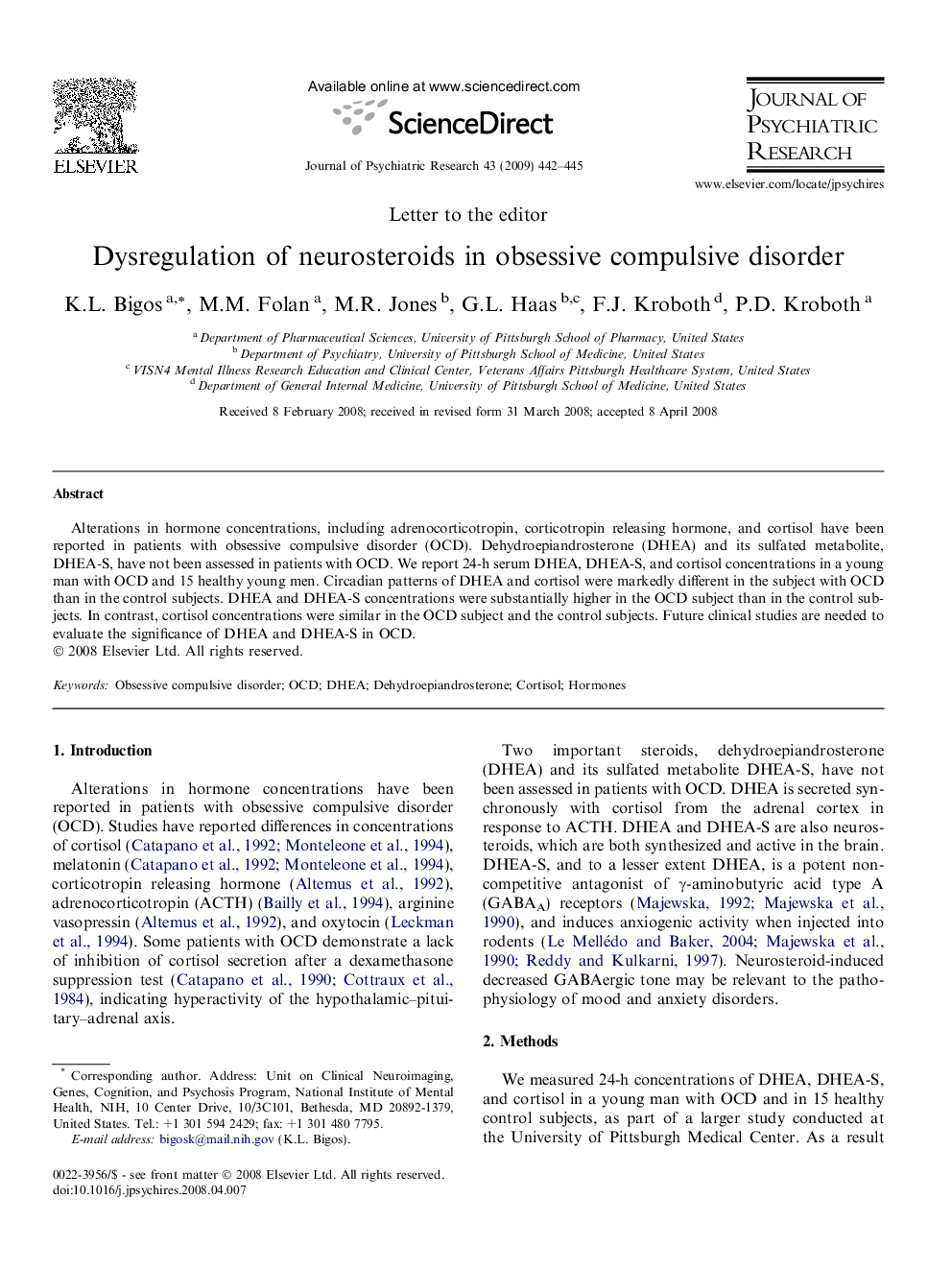| Article ID | Journal | Published Year | Pages | File Type |
|---|---|---|---|---|
| 327996 | Journal of Psychiatric Research | 2009 | 4 Pages |
Alterations in hormone concentrations, including adrenocorticotropin, corticotropin releasing hormone, and cortisol have been reported in patients with obsessive compulsive disorder (OCD). Dehydroepiandrosterone (DHEA) and its sulfated metabolite, DHEA-S, have not been assessed in patients with OCD. We report 24-h serum DHEA, DHEA-S, and cortisol concentrations in a young man with OCD and 15 healthy young men. Circadian patterns of DHEA and cortisol were markedly different in the subject with OCD than in the control subjects. DHEA and DHEA-S concentrations were substantially higher in the OCD subject than in the control subjects. In contrast, cortisol concentrations were similar in the OCD subject and the control subjects. Future clinical studies are needed to evaluate the significance of DHEA and DHEA-S in OCD.
